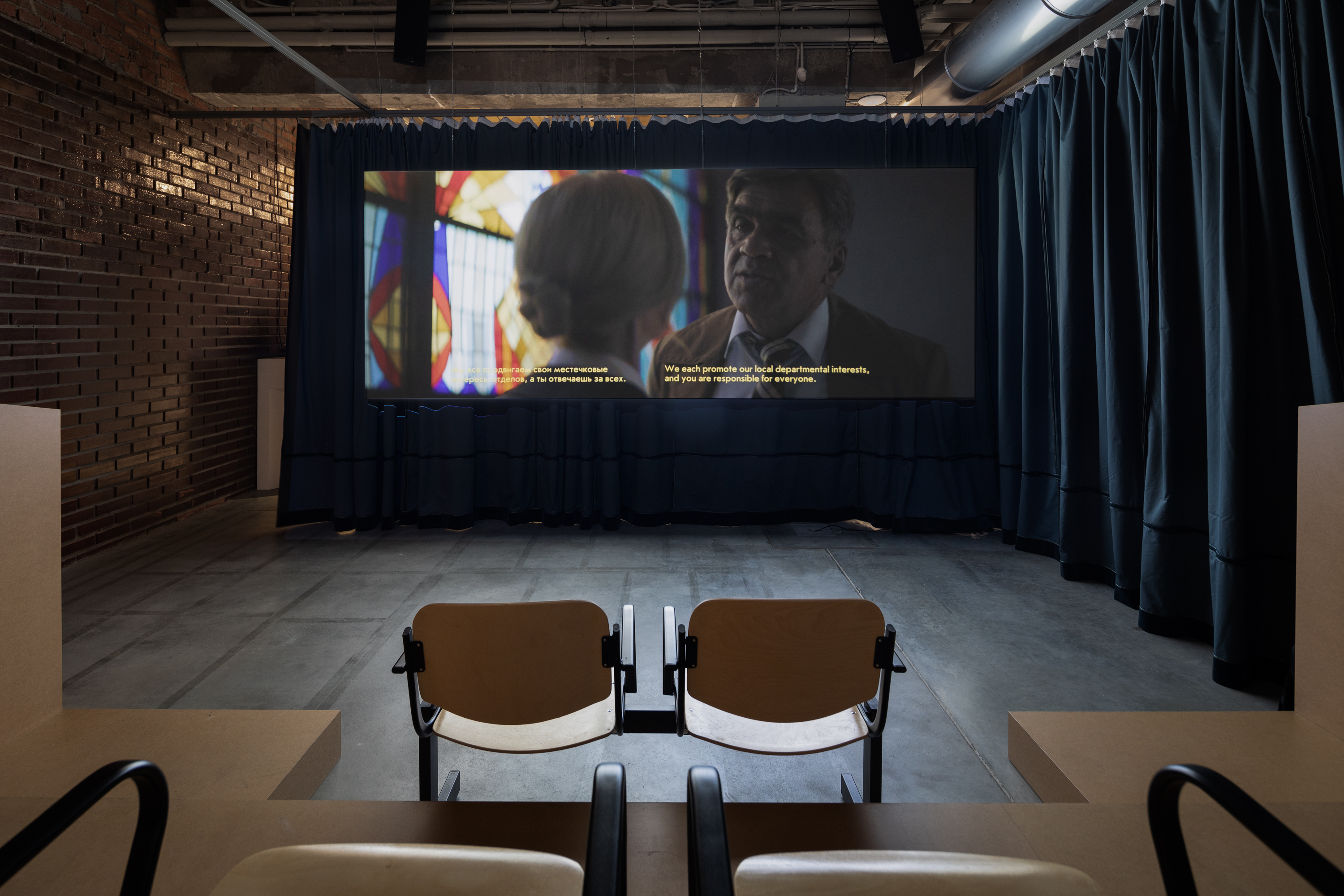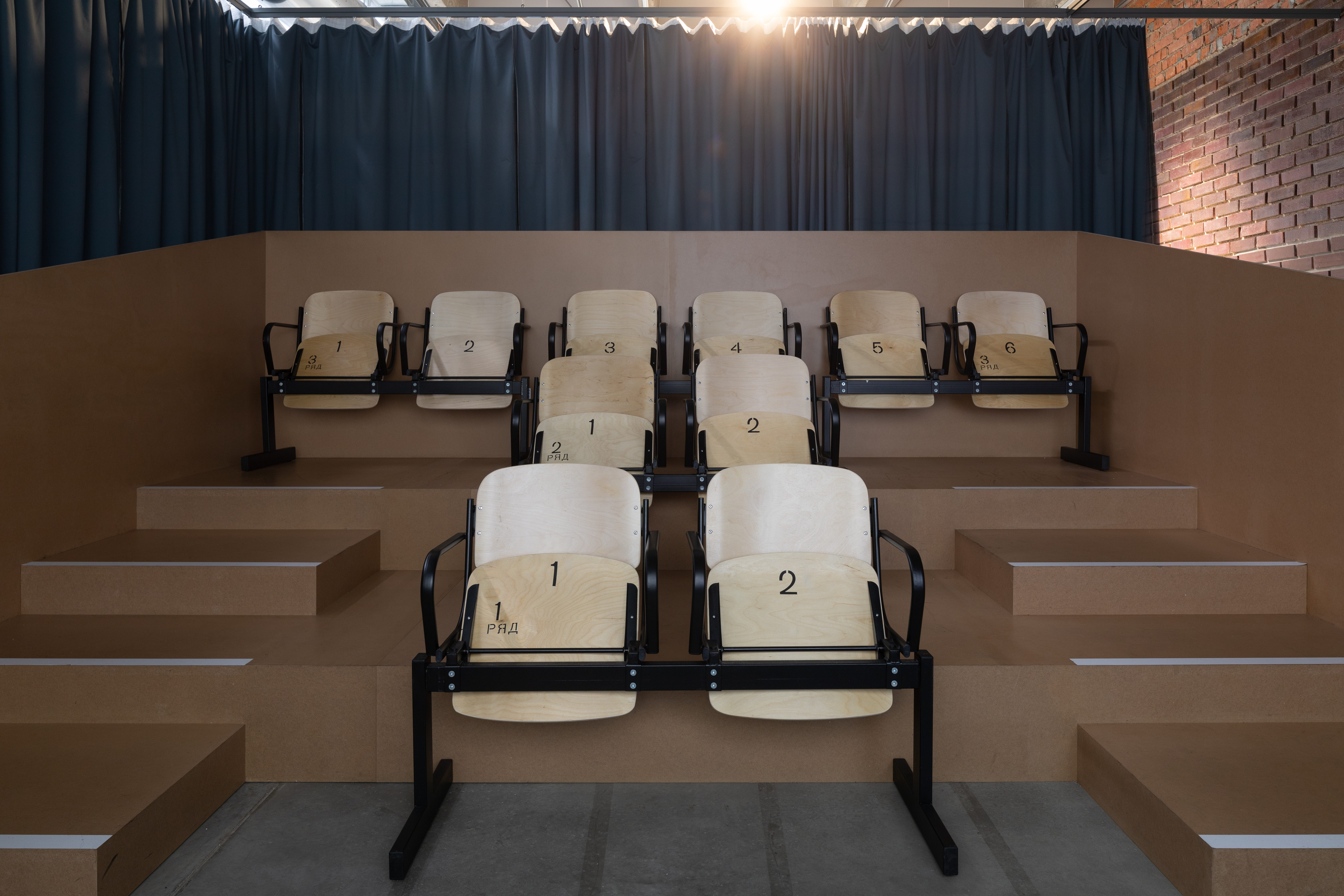2020
2nd Garage Triennial of Russian Contemporary Art
‘A Beautiful Night for All The People’
Garage Museum
Moscow, Russia • Group show
‘A Beautiful Night for All The People’
Garage Museum
Moscow, Russia • Group show
Kirill Gluschenko, Moscow Lights, 2020
Video, 23 min 30 sec, 5k, Widescreen 2.66:1
The small Kaliningrad-based publishing house Glushchenkoizdat became widely known after the exhibition Our Days are Rich and Bright, which took place at the Stankolit factory in Moscow in 2016. The Glushchenkoizdat publications presented in the show included photographic albums about various cities in the Soviet Union and Eastern Bloc countries, as well as a unique publication: the diary of Nikolai Kozakov, a bus driver and hunter who lived in Gorky Oblast (today Nizhny Novgorod Oblast). The albums and archives published by Glushchenkoizdat draw attention to the literary and visual undertones of the Khrushchev Thaw. Using faded black-and-white imagery, the publisher reminds us how, as the threat of mass persecution subsided, a new, freer and more elegant human being emerged: the citizen of the postwar Soviet Union. The documentary about the publishing house shot for the Triennial is screened in a space that recreates the interior of Barrikady Cinema, one of Kaliningrad’s key cultural platforms that hosted noise and electronic music concerts, poetry slams, and other events in the 2000s. In the 2010s, the ownership of the building was transferred to the Russian Orthodox Church and the cinema was demolished. — Valentin Diakonov
Video, 23 min 30 sec, 5k, Widescreen 2.66:1
The small Kaliningrad-based publishing house Glushchenkoizdat became widely known after the exhibition Our Days are Rich and Bright, which took place at the Stankolit factory in Moscow in 2016. The Glushchenkoizdat publications presented in the show included photographic albums about various cities in the Soviet Union and Eastern Bloc countries, as well as a unique publication: the diary of Nikolai Kozakov, a bus driver and hunter who lived in Gorky Oblast (today Nizhny Novgorod Oblast). The albums and archives published by Glushchenkoizdat draw attention to the literary and visual undertones of the Khrushchev Thaw. Using faded black-and-white imagery, the publisher reminds us how, as the threat of mass persecution subsided, a new, freer and more elegant human being emerged: the citizen of the postwar Soviet Union. The documentary about the publishing house shot for the Triennial is screened in a space that recreates the interior of Barrikady Cinema, one of Kaliningrad’s key cultural platforms that hosted noise and electronic music concerts, poetry slams, and other events in the 2000s. In the 2010s, the ownership of the building was transferred to the Russian Orthodox Church and the cinema was demolished. — Valentin Diakonov
Fig. 1-2


Fig. 3

Fig. 4
